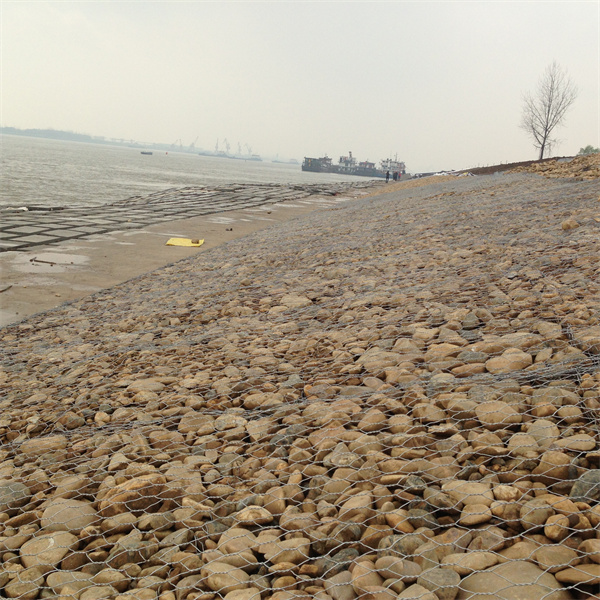Aza . 09, 2024 08:48 Back to list
Gabion Mesh Cage Manufacturers for Durable Landscaping and Erosion Control Solutions
Exploring Gabion Mesh Cage Factories Innovation and Sustainability in Construction
In recent years, the construction industry has seen a significant shift towards sustainable practices, and gabion mesh cages have emerged as an innovative solution for various engineering challenges. Gabions, which are wire mesh containers filled with rocks or other materials, are commonly used for erosion control, retaining walls, and decorative applications in landscapes. The factories that produce these essential components play a crucial role in modern construction, merging innovation with sustainability.
The Manufacturing Process
The production of gabion mesh cages involves several key steps that highlight both technological advancements and traditional craftsmanship. Factories typically begin by selecting high-quality steel wire, which is essential for the durability of the gabion structures. The wire is then wire-drawn to reach the required gauge, usually between 2.0mm to 4.0mm. Following this, the wire is electro-galvanized or PVC coated to enhance its resistance to corrosion, thereby extending the lifespan of the gabions.
Next, the wire is woven into mesh panels using specialized machinery. These panels are designed to be strong enough to hold their shape while allowing for adequate drainage and vegetation growth, which further stabilizes the structure. Once the mesh is constructed, the panels are cut and assembled into cages of various sizes and shapes to meet specific project requirements. Factories often offer customization options, allowing clients to choose the dimensions and specifications that best suit their needs.
Sustainability and Environmental Impact
One of the most significant advantages of gabion mesh cages is their positive environmental impact. By using natural stones or recycled materials to fill the cages, these structures promote ecological balance and support local biodiversity. Furthermore, the use of gabion walls helps to prevent soil erosion, thereby protecting nearby ecosystems and waterways.
Gabion cages are also highly versatile and can be used in various applications, including riverbank stabilization, slope protection, and noise barriers. Their permeable nature allows water to flow through, reducing pressure buildup and minimizing the risk of flooding. In addition, they are often used in green infrastructure projects, helping to manage stormwater and promote sustainable urban development.
gabion mesh cage factories

The Role of Technology in Gabion Production
The integration of technology in gabion mesh cage factories has revolutionized production efficiency and quality control. Automated machines and robotics are increasingly employed to streamline the manufacturing process, reducing labor costs and minimizing errors. Computer-aided design (CAD) software allows engineers to create precise specifications for custom projects, ensuring that the final product meets the project requirements.
Moreover, factories are increasingly adopting eco-friendly practices in their operations. This includes using renewable energy sources, recycling waste materials, and implementing water conservation measures. As a result, the carbon footprint associated with producing gabion mesh cages is significantly reduced.
Market Demand and Future Prospects
The demand for gabion mesh cages is on the rise, propelled by a growing emphasis on sustainable construction practices and climate resilience. Governments and private sectors are increasingly investing in infrastructure projects that incorporate environmentally friendly solutions, and gabions are perfectly positioned to meet this demand.
As the construction industry continues to evolve, gabion mesh cage factories play a vital role in providing sustainable products that address modern challenges. By combining traditional materials with contemporary manufacturing techniques, these factories help shape a future where construction is not only efficient but also environmentally responsible.
Conclusion
Gabion mesh cages exemplify the intersection of innovation and sustainability within the construction industry. Their ability to stabilize landscapes and protect ecosystems while adapting to contemporary needs underscores their importance in modern engineering solutions. As we look ahead, the role of gabion mesh cage factories will continue to be integral in fostering a sustainable built environment that harmonizes with nature. Through relentless innovation, these factories will help pave the way for a resilient and sustainable future.
-
Why PVC Coated Gabion Mattress Is the Best Solution for Long-Term Erosion Control
NewsMay.23,2025
-
Gabion Wire Mesh: The Reinforced Solution for Modern Construction and Landscape Design
NewsMay.23,2025
-
Gabion Wall: The Flexible, Seismic-Resistant Solution for Modern Landscaping and Construction
NewsMay.23,2025
-
Gabion Wall Solutions: The Durable, Decorative, and Affordable Choice for Every Landscape
NewsMay.23,2025
-
Gabion Basket: The Durable and Flexible Alternative to Traditional Retaining Walls
NewsMay.23,2025
-
Gabion Basket: The Proven Solution for Slope Stability and Flood Control
NewsMay.23,2025
-
Versatility of Chain Link Fence Gabion
NewsMay.13,2025






